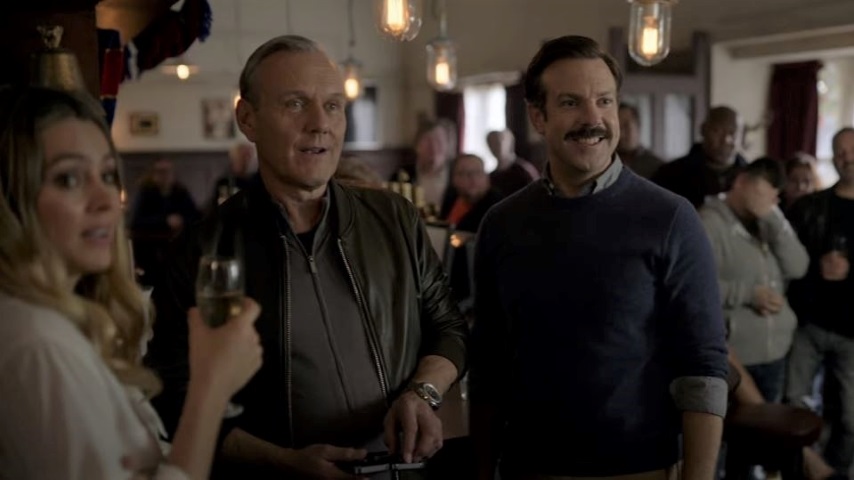A question can change a life.
Ted Lasso is my new favorite show. It’s not just the British humor or the relentless positivity of the title character, a Kansas City native dropped in an English Midlands town to coach its football (soccer) club — the fable of each episode intrigues me.

A jilted wife takes ownership of the soccer team from her serial-cheating husband. The ex continues to try to weasel his way into the owner’s box, literally and figuratively.
In a pub showdown, the ex challenges Ted, the aw-shucks folksy coach, to a game of darts. £10,000 pounds to the winner. Ted counters: if the ex wins, he gets to choose the starting lineups. If Ted wins, the ex can’t go anywhere near the owner’s box. All agree to Ted’s wager.
The ex pulls out his own silver dart kit. Ted pulls an Inigo Montoya, “Oh, I forgot I’m left-handed.” And yet, the end of the game doesn’t look good for Ted. He has to pull off a near-impossible set of throws to win.
In the deciding final throws, Ted begins to wonder aloud about curiosity. He quotes Walt Whitman, “Be curious, not judgemental.” And he throws the dart right where it needs to land.
He shares a conclusion he came to: all the people who belittled him were never curious. Their judgment of him had nothing to with Ted. And he lands the next dart into the 20 rectangle.
All the people who belittled Ted were never curious.
“Because if they were curious, they would have asked questions,” Ted says. And he throws a bullseye to win the game.

I found two lessons in this story.
Lesson One:
A posture of curiosity changes a conflict. It changes your internal dialogue. It changes your leadership. A posture of noticing and being curious provides insights to solutions.
A few suggestions for conversations with others:
I’m curious how…
I’m wondering what would happen if…
What are some reasons…
I’m noticing {blank}. I’m curious if…
Lesson Two:
What other people think often has little to do with you. Everyone is caught up in their own internal battles and relentless life challenges. This always stirs up compassion in me, and reduces the crazy-making (and rarely helpful) assumptions I make about other people’s thoughts.
One of the hardest lessons I’m learning is, “What other people think of me is none of my business.” — Elenor Roosevelt. And while the learning is challenging, it’s bringing so much freedom to me.
Take some time to observe your approach.
Ask yourself, “Am I judging or curious right now?”
What are you going to do next?
Comment and let me know how it goes. Better yet, email me, and we can get curious together about how to improve your leadership so you are effective and confident.

COMMENTs:
0